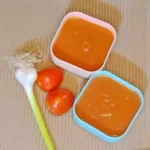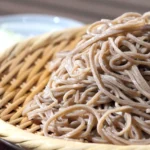Though not all protein powders are made from worms, bugs or insects, yet those advertised as worm or insect protein powders, are made from crickets, mealworms, and black soldier flies as a sustainable, environment-friendly protein source. Grasshoppers and other insects like houseflies and silkworms are also being explored for their unique nutritional and functional potential.
The insect or worm based protein powders have their own advantages, disadvantages, and associated concerns.
If you’re looking forward to learning as much about insect/worm protein powder as possible, please keep reading.
What is Protein Powder, and Why is it so Popular?
Protein powder is a concentrated source of protein, a crucial nutrient for building and repairing muscles. It’s made by squeezing all the protein out of food, then drying it into a fine powder.
Protein powder is made from various sources like milk (whey, casein), eggs, beef, soy, or peas, even from insects these days, to get you protein powders with varying textures, flavors, and protein content.
Protein powder’s popularity boils down to several reasons:
- It has low calories but higher protein content, making it ideal for athletes and fitness seekers.
- It’s time-saving and easy to use: Mix it into shakes, smoothies, or even baked goods for a quick protein boost.
- It’s portable: Perfect for athletes or busy individuals on the go, providing a convenient protein source anytime, anywhere.
- Versatile: It comes in various flavors and types to suit different dietary preferences and needs, like lactose-free, vegan, or low-carb options.
What is Insect or Worm Protein Powder?
Consuming insects or worms as a protien source is not a new concept in many Asian and African countries. Yet, in the USA and European countries, insect protein has emerged as a more sustainable source of protein as the World Economic Forum also encourages the trend.
Insect protein powder is made from ground-up, protein-rich, safe-to-consume insects like crickets and mealworms (larvas of yellow mealworm beetles, fed on fungus, seeds, and decaying plants), black soldier flies.
It’s advertised as a healthy and sustainable alternative to traditional sources like meat and dairy. Packed with protein, amino acids, and essential nutrients, it’s great for building muscle and staying energized.
Do all Protein Powders have Worms?
No, not all protein powders contain worms as an ingredient! Those which have worms or insects, clearly mention them in the ingredients list. These protien powders have worms or insects like crickets, mealworms, or black soldier flies as a sustainable nutritious alternative.
However, popular protein powders like whey, soy, and plant-based options are derived from animal or plant sources and don’t involve insects.
How is Insect Protein Powder Made?
Transforming tiny insects into protein powder involves several steps:
- Happy Homes: Insects like crickets or mealworms grow up in clean, controlled farms, munching on nutritious food.
- Harvest Time: Once mature, the insects are gently collected and humanely stunned.
- Cleaning Crew: They’re then washed and blanched to remove any impurities.
- Crunch Time: Next, the insects are dried carefully, either freeze-dried or oven-dried, turning them into crunchy bits.
- Grind and Blend: These crunchy bits are then finely ground into a light powder, sometimes sifted for different textures.
- Ready to Mix: Voila! The insect protein powder is ready to be blended into smoothies, baked into bars, or sprinkled onto meals for a protein boost.
Each step is carefully monitored to ensure safety, hygiene, and top-notch quality, transforming little insects into a sustainable and nutritious powerhouse.
You may visit this video link to visualize the whole process of mealworms’ protein powder making.
Is Protein Powder Made of Insects Safe for You?
Protein powder made from insects like crickets or mealworms is generally safe for consumption. It undergoes rigorous processing and testing to ensure purity and hygiene.
These powders feature high protein content and essential nutrients without any carbs. But be sure to check for potential allergies before trying.
What are the Advantages of Protein Powder Made of Worms or Insects?
Insect protein powder offers several advantages over traditional options:
Excellent Source of Protein and Mineral
Insect and worm protein make incredible nutritional sources without burdening the environment, especially crickets.
Crickets are packed with more protein, important amino acids, vitamins, minerals, and fiber. The nutritional content is even more iron than beef and calcium than chicken!
Likewise, mealworms and other edible worms have been recognized to have higher amounts of nutrients like protein, vitamins, minerals, and healthy fats. They rival even meat.
These munchkins are easy to digest and low in bad fats, making them a heart-friendly protein choice.
Keto-Friendly
Ditch the carbs! Insect protein is naturally low in sugar and carbohydrates, making it perfect for keto and low-carb diets.
Dairy-free Delight
Say goodbye to lactose worries! Unlike whey or casein, insect protein is completely dairy-free, ideal for those with sensitivities.
Soy-free Satisfaction
No more soy woes! This protein source is naturally soy-free, catering to those with allergies or dietary preferences.
Easy Breezy Blending
Mix it up! Insect protein powders are often flavorless and blend seamlessly into smoothies, shakes, or baked goods.
In short, insect protein comes with certain advantages. With a little research, you can discover the buzzing potential of this unique protein source!
What are the Potential Drawbacks of Worm Protein Powder?
Worm protein powder, though intriguing, carries some considerations, like:
Cholesterol Factor
Just like other animal-based protein powders, the worm protein powder also has cholesterol. For instance, cricket powder has 45 mg of cholesterol in a 10-gram serving.
Unfamiliar Texture and Taste
The unfamiliar texture and taste might require blending or masking in strong flavors. The aroma is more noticeable if you use the worm protein powder in the recipes that require cooking.
Higher Cost
Its novelty might lead to higher costs compared to established protein sources like whey.
Psychologically Less Acceptable
The ick factor, rooted in cultural perceptions of insects, can hinder its acceptance.
Allergies
Though rare, insect protein powder can trigger allergic reactions in individuals sensitive to shellfish, crustacean or dust mites. Consult a doctor before consuming if you have concerns.
In short, though promising, worm protein powder merits cautious exploration before full incorporation into your diet.
Why Is Insect-based Protein a Sustainable Alternative to Protein Powders?
Insect-based protein powders offer a sustainable alternative to traditional powders for several reasons:
- Land and water: Crickets or worms need far less land and water than cows or other livestock to produce the same amount of protein. This helps conserve precious resources.
- Greenhouse gases: Worms or insect farming generates fewer greenhouse gases compared to traditional animal agriculture. This means less pollution and a smaller impact on climate change.
- Feed efficiency: Worms or insects convert their feed into protein much more efficiently than cows. This reduces the environmental impact of feed production.
- Nutritious: Worms or insects’ protein is a complete protein source, rich in essential amino acids and micronutrients. It can be just as good for you as traditional protein powders.
- Scalability: Worms or insects’ farming can be easily scaled up to meet growing protein demands without requiring vast resources. This makes it a sustainable solution for the future.
By choosing worm or insect-based protein, you can help protect the planet and enjoy a nutritious protein source at the same time.
FAQs
Is Insect Protein Powder Halal?
Determining if an insect protein powder is halal depends on individual interpretation and religious authority.
Though some scholars consider crickets permissible based on their similarity to halal locusts, others might advise caution due to the general prohibition of insects in Islamic dietary laws.
Consulting a knowledgeable scholar familiar with your specific context is recommended for a definitive ruling on halal insect protein powder consumption.
What Does Insect or Worm Protein Powder Taste Like?
Insect protein powders, like cricket or mealworm varieties, often surprise people with their mild, neutral taste, which ranges from nutty to earthy. Yet individual reaction varies.
For instance, most consumers have praised cricket powder by JR Unique Foods for its nutty flavor, yet some have also ditched it, calling it “buggy.”
The particular displeasure was aroused, especially when some tried to use the protein powder in recipes requiring cooking–the aroma proved less pleasant.
Likewise, as for the mealworm, it is described as tasting earth, but whether you like it or not depends on your taste buds.
So, to try the taste, first, you need to ditch the “ick” factor and also be open to surprises–pleasant or annoying…!
Is Insect Protein Powder Cholesterol Free?
Insect protein powders can be made from various insects, including mealworms and crickets.
Neither offers “cholesterol-free” status, but both contain significantly less total cholesterol than red meat. Additionally, cricket protein boasts a higher ratio of “good” (HDL) cholesterol, potentially benefiting heart health. For example the cricket powder by JR Unique Foods has 45 mg of cholesterol in 7 grams serving.
Though neither insect-based powder is entirely cholesterol-free, they present a lower-cholesterol protein option compared to many traditional sources.
So, if you’re particularly concerned about getting cholesterol-free protein powder, opt for plant-based, vegan options like Vega Protein and Greens Protein Powder–they have zero cholesterol.
Conclusion
Insect protein powder packed with protein, beats meat and dairy for sustainability, and blends easily. But there’s a “but.” It might not absorb as well, could have cholesterol, and, well, it’s bugs.
Ultimately, the choice is yours. If you’re eco-conscious and protein-hungry, give it a try!
Just be prepared for a new taste and texture, and maybe check the label for cholesterol.
And hey, if you’re not ready to ditch the whey, that’s cool too. There’s plenty of protein to go around in this diverse world.
Disclaimer
This information is for educational purposes only and doesn’t replace professional medical advice. Consult a doctor for any health concerns, personalized diagnosis and treatment.







